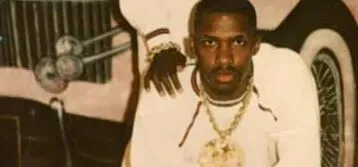Rayful Edmond Death & Obituary: Rayful Edmond III, the notorious drug kingpin whose name became synonymous with Washington, D.C.’s crack cocaine epidemic during the 1980s, has died suddenly at the age of 60. Edmond suffered a fatal heart attack just months after his release from prison this past July, marking the end of a life that both captivated and scarred the nation’s capital.
The Rise of a Drug Empire
During the height of the 1980s, Edmond rose to power as a central figure in the crack cocaine trade, partnering with the Medellín Cartel through the Trujillo-Blanco brothers. His organization moved an estimated 1,000 to 2,000 kilograms of cocaine weekly, fueling addiction and violence that devastated Washington, D.C., and earned it the grim moniker “murder capital of the United States.”
Austin Dean Death & Obituary: Former North Attleboro High School Wrestler Tragically Killed
Edmond’s criminal enterprise not only brought immense wealth to its leader but also wreaked havoc on the city’s neighborhoods, leaving lasting scars on families and communities. His rise epitomized the destructive power of the drug trade and its capacity to sow chaos in urban America.
Edmond’s Arrest and Cooperation with Authorities
Federal authorities dismantled Edmond’s empire in 1989, arresting him and exposing the far-reaching impact of his operation. Sentenced to life in prison without parole, Edmond’s downfall became a symbol of the brutal realities of the crack epidemic and the devastating cost of the drug trade.
Decades later, in a surprising twist, Edmond chose to cooperate with federal authorities, providing information on major drug networks. His cooperation led to a reduced sentence and eventual release earlier this year. While some in the community viewed his release with skepticism, others hoped his story could serve as a lesson in accountability, redemption, and the profound consequences of crime.
A Complex Legacy in Washington, D.C.
Rayful Edmond’s legacy is one of duality. On one hand, he remains a cautionary tale—a man whose empire contributed to one of the darkest chapters in Washington, D.C.’s history. On the other hand, his cooperation with law enforcement and release sparked debates about the possibility of change and redemption.
The scars of the crack epidemic Edmond helped fuel are still visible in Washington, D.C., from fractured families to neighborhoods striving to rebuild. His name is forever linked to a pivotal and painful period in the city’s history, serving as a stark reminder of the long-lasting consequences of crime and addiction.
Conclusion: The End of a Controversial Chapter
Rayful Edmond’s sudden death closes the final chapter of a life marked by notoriety, power, and eventual cooperation with the law. His story continues to provoke reflection on the destructive power of the drug trade and its impact on communities. As Washington, D.C., moves forward, Edmond’s legacy remains a haunting yet instructive reminder of an era that shaped the city’s past and informs its future.

